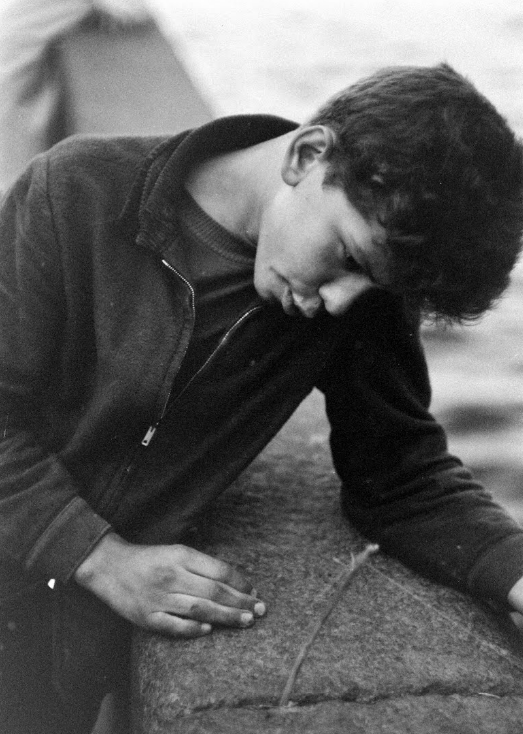Manuel Regla
Professor Wexler
English 495
The Native Son
Home is something different for everyone. The relationship individuals have with the places they refer to as home almost always certainly shapes the way one will act, feel, and think. For writers, home can either be a damning place, or an environment that provokes artistic inspiration. For writer Carl Sandburg, the city of Chicago served as his source of muse. Sandburg paid tribute to the city he spent the bulk of his literary career in with his famous poem “Chicago.” The poem is written with such vigor and admiration it is hard to resist the obvious endearment Sandburg has for the city. The poem possesses expressive language and rich details that make the city come to life on the page. Sandburg’s “Chicago” exemplifies how a home can leave a lasting impact on a writer.
Chicago is recognized as one of the major American cities that most know, but few understand. Los Angeles is known globally as the “Entertainment capital” of the world. New York is widely acknowledged as the crown jewel of opportunity. Chicago on the other hand, is more known for its weather conditions. The “Windy city,” as it is famously known, is a proud city that has been a staple in America with its breathtaking architecture and transportation innovation. Despite the beauty and rich history, Chicago is still stigmatized as being a lesser compared to Los Angeles and New York. Sandburg addresses this opinion with a stern defense in his poem. In the second stanza, Sandburg follows a pattern that presents the negative stereotypes of Chicago with the phrase “they tell me,” followed by a statement badmouthing Chicago. Sandburg admittedly agrees to the flaws of the city by stating he has in fact seen these events with his own eyes. But he then defends the city by stating: “Come and show me another city with lifted head singing so proud/to be alive and coarse and strong and cunning” (15-16). Sandburg even goes on to take a jab at other cities with less robust attributes than Chicago. Sandburg says: “Flinging magnetic curses amid the toil of piling job on job/here is a tall bold slugger set vivid against the little soft cities” (17-18). Sandburg admits that his city has flaws, even corruption, but the strength in its spirit sets it apart from every other in his heart.
Sandburg spent a significant portion of his literary career as reporter in Chicago. It would be the time living in the city that would shape his down to earth writing style that he is most remembered for. Danny Heitman detailed Sandburg’s time in Chicago, and how it shaped his writing. Heitman stated “Like his reportage, the poems often read like prose with a topical flair. They crackle with the authenticity of everyday experience, the texture of daily life.” Sandburg’s literary work, “Chicago” in particular, oozes of honesty. Line by line Sandburg is obviously stating his biased opinion, but he is in no way trying to lie to himself or to his readers. The earnest emotions he has for Chicago makes the poem that much more rich in quality. Like a true reporter, he leaves no detail unturned. Sandburg opens his poem famously with Chicago’s reputation, and history. Sandburg states:
Hog Butcher for the World,
Tool Maker,
Stacker of Wheat,
Player with Railroads, and the Nations’ Freight Handler;
Stormy, husky, brawling,
City of the Big Shoulders (1-5).
In just this opening stanza, Sandburg is able to capture the essence of the city as he knows it. He captured the hardworking attitude of its people, the crucial importance it has in the history books, and the chip on its shoulder which gnaws unrelentingly like a flea. Sandburg wrote about Chicago so devotedly because he related to it. He related to qualities the city had to offer, and how he somehow fit perfectly in with them. Sandburg ultimately wrote about what he knew, and what he knew was authenticity.
“Chicago” has a definite voice to it. This voice is a reflection of its creator. The poem’s lines never read like some abstract puzzle, but more like an easily followed conversation. This conversation type format is what Sandburg familiarizes himself with in most of his poetry. His use of free verse gives his work a naturalistic and appealing legibility to his readers. Scott Holstad acknowledges Sandburg’s writing style and literary voice, he explains: “Sandburg further displays his originality in his use of a poetically new American idiom. While contemporaries like Frost continued to work with formal diction, Sandburg writes in the voice of the common man.” This common man voice as Holstad puts it makes Sandburg’s work more easily accessible to readers. In “Chicago,” Sandburg uses the blue collar approach to paint a picture of a city with a tough nosed worth ethic, which would translate to popularity in the sociological middle class. “Chicago” is written in free verse, it is dedicated to the workers, and because of this Sandburg also received his fair amount of political criticism (Holstad). Sandburg a known member of the socialist party, found his work criticized for possessing socialist theories with in them. A writer will always have his or her background investigated when analyzing one of their works. It is no doubt a challenge to not quickly attempt to compare the two. Sandburg like most writers did let his personal life and opinions transcend onto the page, and because he did so, this only made him more of an unique figure in literary history.
Sandburg’s “Chicago” is a poem that on the surface can be perceived as being simple and with little to no substance. But looking at the work in with regards to historical background and Sandburg’s own personal life, the piece reveals its many layers. Sandburg’s love letter to the city that influenced him is a tour de force that packs a wallop comparable to that of Dick Butkus. The thunderous sounds and violent imagery Sandburg presents ultimately leaves a lasting impression that can pierce even sheet metal. “Chicago” is a poem in which a reader can walk away from it without having to understand what he or she just read, but can simply appreciate the experience it provided. At the end of the day, this city does not want to be understood, but simply respected.
Works Cited
Heitman, Danny. "A Workingman's Poet." National Endowment for the Humanities. N.p., Mar.-Apr. 2013. Web. 10 Feb. 2014.
Holstad, Scott C. "Sandburg's Chicago Poems." Asheville Poetry Review RSS. N.p., 25 Oct. 2004. Web. 10 Feb. 2014.

.png)
